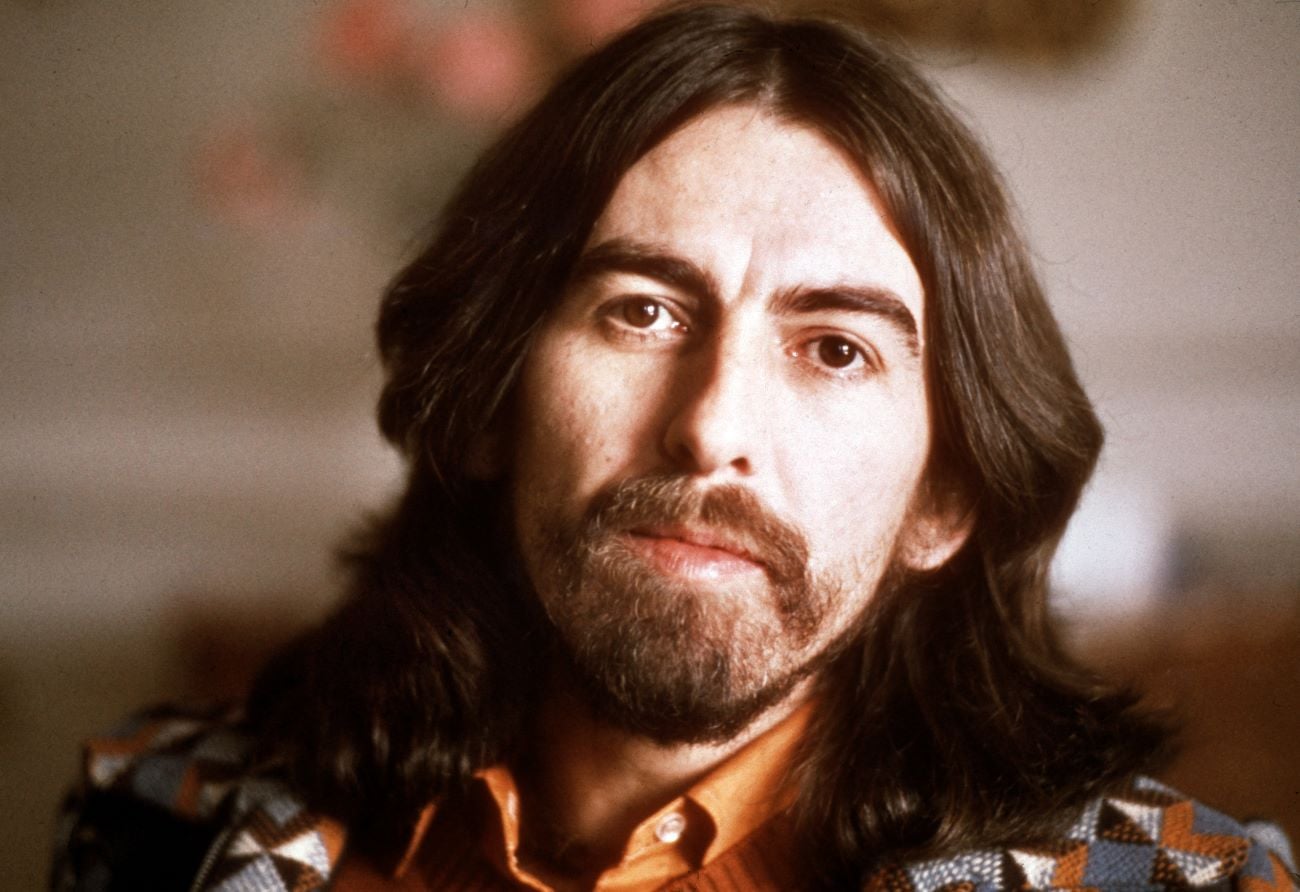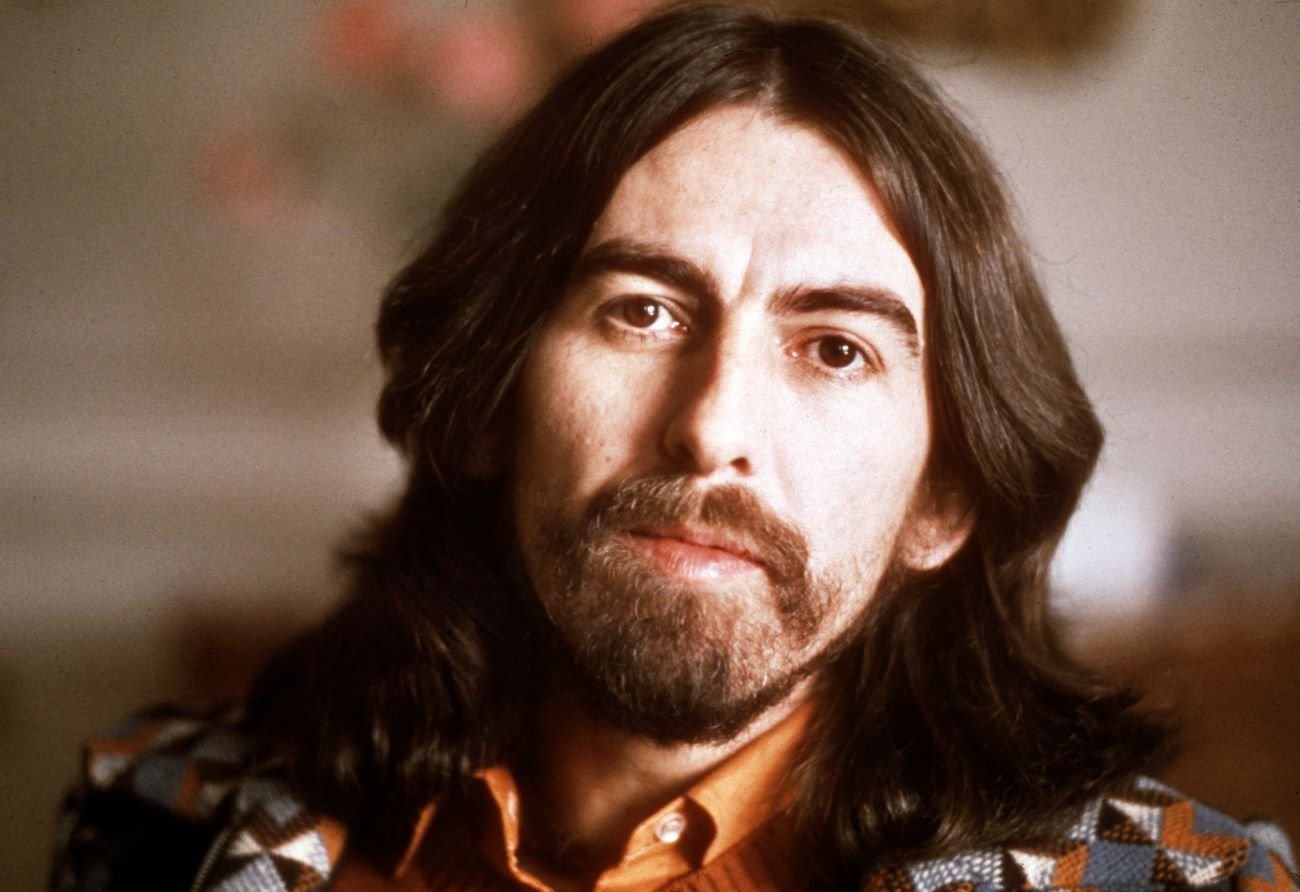
George Harrison Had No Idea He Was in Financial Danger Because of a Business Associate
George Harrison lived in financial comfort after rising to fame as a teenager. He was a successful musician for the majority of his life, but he also dabbled in other industries. In the late 1970s, he and his business partner, Denis O’Brien, dove into the film industry with their company, HandMade films. While they produced some successful films, the company began to struggle. Harrison didn’t realize that the company’s struggling finances meant he was also in trouble.

The former Beatle used his house as collateral to finance ‘Life of Brian’
In 1978, the first backer of Monty Python’s Life of Brian pulled out after reading the script. Desperate, actor Eric Idle came to Harrison for help. He knew Harrison was a fan of Monty Python and also that he had more money than most people he knew.
“Eric said George had always been a huge Python fan, and Michael Palin and Terry Gilliam had become friendly with him,” producer John Goldstone told the LA Times. “So Eric said, ‘Why don’t we see whether George could help?’ We went to his house in the Hollywood Hills, and I can’t remember if we had sent him the script or if he had read it, but he said, ‘Yeah, I’ll do it.’ And that was it.”
To finance the movie, Harrison used his home as collateral.
“I only learnt years later from George that to raise the money he’d put his house on the line, and Denis had put up the premises of his house as collateral,” director Terry Jones said, per the book Very Naughty Boys by Robert Sellers. “So if I’d known that, I would have been a lot more worried about the outcome of the thing, but at the time I just thought, Oh, they’ve all got tons of money and it’s all right. I’m glad I didn’t know.”
George Harrison was in a tight financial position because of his business partner
Luckily for Harrison, the movie was a commercial success. HandMade films became an important player in British cinema, releasing 23 films in 10 years. Not all of these movies were as successful as Life of Brian, however. By the late 1980s, HandMade was struggling to stay afloat. O’Brien hired an accountant, John Reiss, to look into their affairs. He discovered that Harrison was in a difficult position.
While Harrison believed that he and O’Brien were equal financial partners, he was essentially paying for everything himself. He trusted O’Brien, so he didn’t look into anything as deeply as he should.
“Every time Denis needed more money for films, he would basically use George’s personal guarantee to guarantee the loan and George had no idea and, of course, the bank assumed he was mega-rich and they never checked and he had personal guarantees that were far greater than his net worth,” HandMade film’s Wendy Palmer said.
Reiss and Harrison’s friend Ray Cooper went to Harrison’s home to talk to him about it.
“I told him that most of his assets were in the films and properties, he hadn’t got any liquid capital,” Reiss explained. “His portfolio was totally out of skew in the sense that he hadn’t got resources to meet his day-to-day needs, it was all in celluloid and properties. He also had no pension provision for old age. And then there was the contingent liabilities, the bank guarantees not shared with Denis. And he’d also personally given completion guarantees on films.”
George Harrison didn’t want to believe that he was having financial problems
The news from Reiss was so troubling that Harrison didn’t want to accept it.
“He really didn’t want to know and he virtually threw us out … even his old mate Ray,” Reiss said. “And that saddened me. I think he half-knew, he just didn’t want to hear the terrible news.”
Palmer explained that Harrison always wanted to believe that everything was going well.
“George was the kind of person who’d shoot the messenger because he didn’t want to know,” she said. “He wanted to believe that everything was hunky-dory and fine.”
Eventually, Harrison accepted the bad news. He filed a lawsuit against O’Brien, and a court awarded him $11 million.


